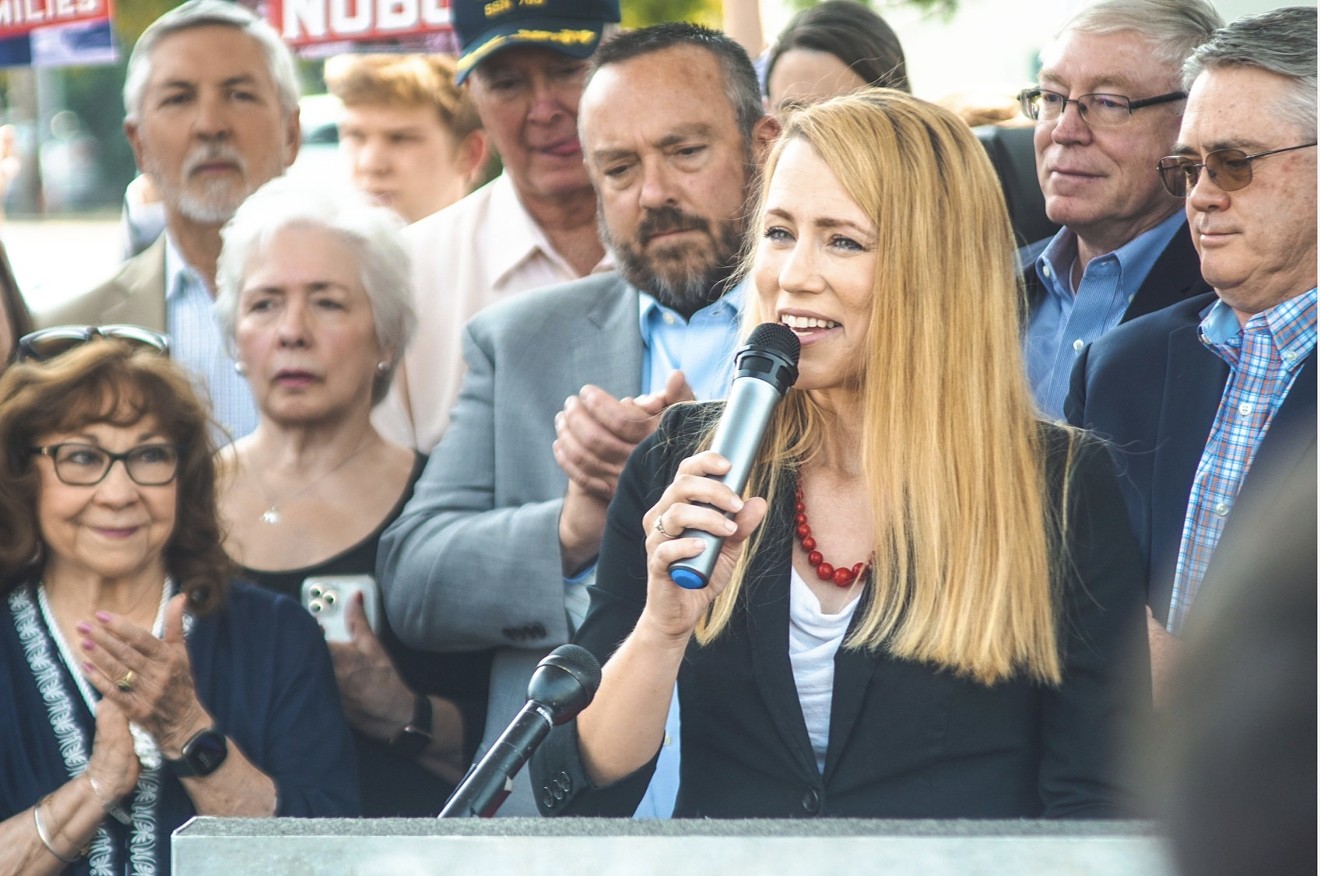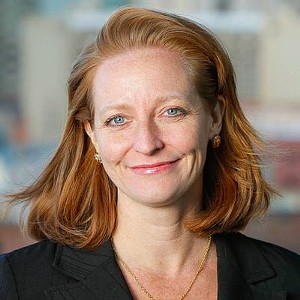Colorado is often on the cutting edge of political issues — abortion rights, cannabis legalization — but it's holding tight to one anachronism: the caucus.
And caucus season is upon us. In early March, voters across the state will once again meet at their precinct caucuses — held in auditoriums, schools, even living rooms — where they'll huddle in certain sections to discuss their preferred candidates, then advocate (often loudly) in front of the whole group, then huddle again. There will be plenty of horse trading as the gatherings move from the precinct to the county to the district level, then culminate in a statewide assembly, or convention, set this year for April 9. From there, the chosen candidates are off to the races — and the June 28 primary.
In Colorado's caucus system, candidates need 30 percent of the vote in order to make the primary ballot; their supporters are locked in for the duration, from the caucus through the state convention. Those whose candidates don't meet the threshold are courted by competitors.
Caucuses have been an intrinsic part of this state's political process since 1910, with a ten-year break from 1992 to 2002, when voters decided to try primaries before ultimately voting to restore the caucus system. While caucuses are governed by state law, their ballots aren't overseen by county election officials or the Secretary of State's Office. Instead, they're overseen by the major political parties in the state, the Colorado Democratic Party and the Colorado Republican Party.
Anyone can attend any caucus to observe, but only registered members of the party who have lived in a particular precinct for at least 22 days can participate in voting. The age range is expansive, though: Participants can be under eighteen if they're pre-registered with the party. For Republicans, participants must be seventeen by the caucus date and turn eighteen before the next general election. For Democrats, anyone sixteen or older can participate. Since precincts are small, often just single neighborhoods, the settings are intimate — and those caucuses can get raucous, as people tout their favored positions and candidates. Candidates often drop by, too.
In a time when people tend to be suspicious of the election process, caucuses are transparent and accessible.
“The benefit to the average person of getting involved is that you can actually have a say at the ground level of which candidates best represent you, and a lot of times you get a chance to talk to them,” says Kristi Burton Brown, chairwoman of the Colorado GOP and a caucus-goer herself. “You're just part of that initial decision of who represents your party on the ballot.”
But Colorado candidates aren't locked into the caucus system. They have two ways to get onto the ballot: through the caucus (in which case they must give their political party notice at least thirty days in advance of the caucus) or petitioning, which requires filing with the Secretary of State's Office and collecting the number of legitimate signatures required by that office by March 15. The number varies by position, but is generally around 1,000. Some candidates hedge their bets and go both the caucus and petition routes.
Under state law, in even-numbered years the major parties must hold their precinct caucuses between the first Tuesday in March and the following Saturday. These precinct caucuses are the first step to the November election nine months later. In 2022, while the Republicans will stick with caucuses on March 1, the Democrats have decided to spread theirs over five days.
"This is our version of local control, so each county can select a date that they think will maximize turnout and participation," explains Democratic Party chair Morgan Carroll. The party left it up to counties to set the specifics for their precinct caucuses, as long as they fell within the required time frame.
In each precinct, voters select delegates for their county assembly. Those delegates vote for delegates to the district assembly, which is made up of multiple counties; those delegates then vote for delegates to the state assembly. At every step, candidates who receive at least 30 percent of the delegate vote remain in the running. Ultimately, candidates who receive 30 percent of the vote at the state assembly make the primary ballot, as do those who successfully petitioned onto the ballot. If a candidate went through both the caucus and petition systems, that candidate must receive at least 10 percent of the vote at the state assembly to make the ballot, even if the required number of signatures has been turned in.
Collecting signatures can get expensive, which is one reason that caucuses still have so many supporters.
“It's important, because Colorado is one of the few states that lets people who don't have a lot of money get on the ballot,” Burton Brown says. “You just convince enough people who get elected as delegates at caucus to vote for you because you're the right candidate.”
The caucuses provide plenty of opportunity for candidates to meet potential supporters. But they can do that while collecting signatures, too. “If your motivation as a candidate is to get out and talk to the people and earn their votes, then either process is legitimate, and we certainly recognize both,” says Burton Brown.
That's one thing on which the two major parties can agree. "Colorado has always been a bit different and, in our opinion, better," Carroll says. "Caucuses retain the important grassroots input to the process, and assemblies allow other candidates a free path to ballot access, but presidential primaries also maximize voter turnout."
Colorado is one of only four states that still hold caucuses to choose statewide candidates. And it now has a presidential primary, too.
In 2016, Colorado voters passed Proposition 107, which called for presidential candidates to be selected in primaries while candidates for statewide and local elections are still determined, at least in part, by caucuses. The push for Prop 107 emerged after Bernie Sanders's candidacy created chaos at the March 2016 caucuses when he attracted so many first-time voters.
The recent presidential elections also increased interest in minor parties, but they're not part of Colorado's caucus system. Although unaffiliated voters and minor-party members can vote in the presidential primary, they aren’t eligible to vote in caucuses. Instead, each minor party has its own convention to select delegates and candidates.
The Libertarian Party — which got its start in Colorado fifty years ago — will hold its state convention on March 12 in Keenesburg, at the Lily Farm Fresh Event Center. Caryn Ann Harlos, state secretary for the Libertarian Party of Colorado, says that the minor-party conventions are essentially the same as caucuses — but Libertarians try to make theirs more fun.
This year's convention will have comedian Dave Smith as keynote speaker, a rumored evening mask burning, and both “liquid and green” refreshments. The voting process is free to observe (only those who'd registered with the party by December 12 can participate), and those who want to stick around for lunch or the evening’s fun can purchase tickets.
The party’s goal is to nominate a candidate for every race in the state. Jacob Luria, campaigns director for the party, is particularly excited that Robert Ballard is running for county clerk in Mesa County, a position currently held by the embattled Tina Peters. “After all the craziness in Mesa, the county deserves a neutral clerk who will bring integrity to a crucial local office,” he says.
He also points to Hannah Goodman, who is running for Holyoke City Council, and Harlos, who is running for Castle Rock Town Council. He thinks both have a good chance to win.
“We've been doing a lot of concentrating on fighting the mandates, but also now with the drums of war beating again…our attention is really getting turned to that,” Harlos says. “We believe we're really the only true peace party out there.”
The Green Party of Colorado has also seen more people looking for alternatives. “There are a lot of people who are very disgruntled with the two major parties,” says Andrea Mérida, former Denver School Board member and interim state co-chair. “We want to talk to people who tend to be left-leaning and tend to be progressive, who are concerned about the environmental issues that we're facing in the state as well as the social justice and economic issues.”
The Green Party convention has been online for the past couple of years because of COVID, and the party has yet to schedule its 2022 convention, though it will likely be in August. In the meantime, it's focusing on building local awareness of the party platform.
With caucuses coming up fast, so are the state's major parties.
“Colorado is one of the states where you can really get to know candidates early,” Burton Brown says. “It's not just a pay-to-play system. It's actual grassroots involvement and average people making these choices. I think it’s really beautiful, personally.”
[
{
"name": "Air - MediumRectangle - Inline Content - Mobile Display Size",
"component": "12017618",
"insertPoint": "2",
"requiredCountToDisplay": "2"
},{
"name": "Editor Picks",
"component": "17242653",
"insertPoint": "4",
"requiredCountToDisplay": "1"
},{
"name": "Inline Links",
"component": "18838239",
"insertPoint": "8th",
"startingPoint": 8,
"requiredCountToDisplay": "7",
"maxInsertions": 25
},{
"name": "Air - MediumRectangle - Combo - Inline Content",
"component": "17261320",
"insertPoint": "8th",
"startingPoint": 8,
"requiredCountToDisplay": "7",
"maxInsertions": 25
},{
"name": "Inline Links",
"component": "18838239",
"insertPoint": "8th",
"startingPoint": 12,
"requiredCountToDisplay": "11",
"maxInsertions": 25
},{
"name": "Air - Leaderboard Tower - Combo - Inline Content",
"component": "17261321",
"insertPoint": "8th",
"startingPoint": 12,
"requiredCountToDisplay": "11",
"maxInsertions": 25
}
]













